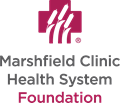Story
The response from everyone has been amazing - we're meeting our original goal of $10,000 in only six days! With all of your help, we can have even more impact on BBS research, and reach $20,000 by the day of the Walkathon.
2020 BBS WALKATHON
The First Virtual Walk for BBS
Join us as we all walk for at least 30 minutes to help raise money for BBS Research. Ongoing research is helping to change the impact of this rare and serious condition.
When: Saturday October 17 - Sunday October 18th, 2020
Where: Wherever you are: we are hoping to have walkers all over the world. Grab your family and friends to join you; tell us something about who you are and why you are walking and share your photos and stories through the weekend.
Why: To raise money for BBS research. We are already seeing strides in what we have learned. Our goal for this year is $10,000.
How: Make a donation, set up a team, share it with everyone you know through email, Facebook, and other social media sites.
Supporting Sponsors:

We thank Prevention Genetics for their generous donation of $2,500.00.

We thank Rhythm Pharmaceuticals for their generous donation of $5,000.00
Bardet-Biedl syndrome (BBS) is a rare genetic disease affecting every organ system in the body. BBS begins to affect the health of a child before birth and continues to affect daily activities throughout life. Although the prevalence of BBS is only about 1 in 100,000 individuals it impacts the lives of thousands of people. BBS is diagnosed based on different features such as:
Vision loss or blindness
Obesity resulting from impaired regulation of hunger
Problems affecting urinary and genital organ function and structure
Chronic kidney disease
Extra fingers and toes
Heart problems
Problems with language, thinking, judgment and memory
Endocrine disorders that may affect growth and development, metabolism, sexual function, reproduction and mood
Sadly, because it is so rare, BBS may not be recognized early. This may delay the start of treatment and support for at-risk families.
Your walk can make a difference, by helping to support the much needed research and treatment plans for BBS:
Marshfield Clinic Research Institute is a recognized leader in care and research in BBS. Physicians and scientists at Marshfield Clinic are championing research that makes a difference in the lives of BBS. The Clinical Registry Investigating BBS (CRIBBS) is the largest international registry of its kind, gathering information on the complex features of more than 600 individuals with BBS. CRIBBS has provided invaluable information to individuals and families affected by BBS; guidance on best practices to physicians; and expanded scientific insights to researchers. Research in new therapeutics in BBS is a central effort in our scientific and clinical efforts.
Marshfield Clinic Health System is the only health system in North America that provides comprehensive care for patients with BBS. In 2013, we launched the nations first treatment center for BBS patients under the direction of Dr. Robert Haws, a Marshfield Clinic Health System nephrologist. Patients from across the U.S. and overseas have traveled to Marshfield to participate in these four-day comprehensive clinics. Since BBS can affect patients differently, there is an emphasis on a multi-specialty approach to address the need of each individual patient and family. We bring in Cardiology, Ophthalmology, Nephrology, Endocrinology, Gastroenterology, Dentistry, Behavioral Health, Neuropsychology and Physical Therapy. "Our diversity allows us to tailor the experience to each patient," said Dr. Haws, "Providing unified care in a national model for how to treat other diseases. "
Following the clinic, a thorough care plan and specific recommendations are provided to the patient's health care provider, and a BBS clinic nurse coordinator provides ongoing support. "It's the greatest joy in my life to see these kids coming here, getting great care, and leaving with a better understanding of what they can do at home," said Dr. Haws.
With each BBS patient and family we serve, we know we are contributing to research that will improve the health and quality of life of individuals affected by BBS.
For more information, please visit: www.marshfieldclinic.org/services/bardet-biedl-syndrome
 Campaign by
Campaign by 